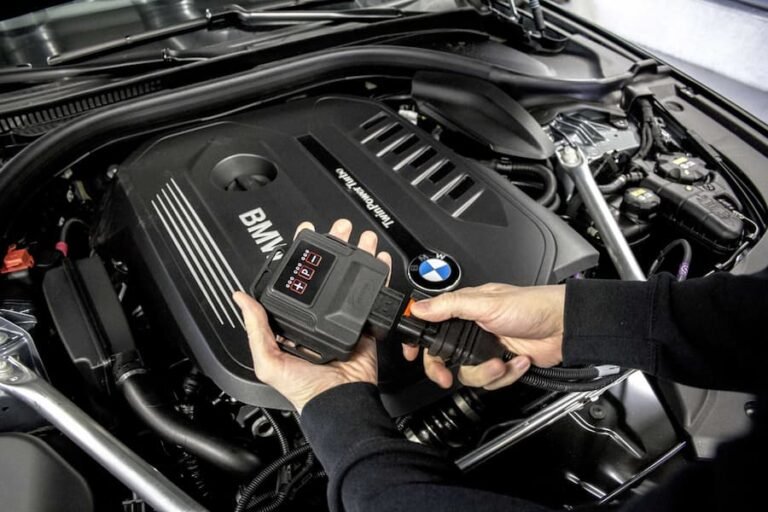Introduction
Performance improvement and vehicle maintenance depend critically on engine tuning. In addition to running more effectively, well tuned engines improve power and fuel efficiency. To guarantee both safety and efficacy, nevertheless, optimal engine performance calls for a deliberate approach to tuning. This article offers professional advice for both amateur and professional tuners together with a thorough instruction on the best techniques for safe and efficient engine tuning.
Expert Tips for Safe and Effective Engine Tuning
Conduct a Comprehensive Engine Inspection
One should first give the engine a careful look before changing anything. Look for problems including general engine condition, worn parts, and leaks. Early resolution of these problems guarantees a safe and efficient tuning procedure. Seat Ibiza 1.2 TSI remap has the best tuning features.
Establish Performance Goals
Specify exactly what you want from your engine tune. Having precise goals can direct your tuning process and enable you to evaluate the performance of your changes whether your objectives are to raise horsepower, improve fuel economy, or improve drivability.
Invest in Quality Tools and Equipment
Accurate tuning depends on using top-notch tools and diagnostic instruments. To properly monitor and change engine characteristics, make investments in a dependable dyno, a wideband oxygen sensor, and other basic instruments.
Follow Manufacturer Specifications
Follow manufacturer’s recommendations for engine adjustment always. Breaking these rules could cause engine damage, less dependability, and even safety risks. Start your tuning changes with the manufacturer’s suggestions.
Make Incremental Changes
When tuning an engine, make little, steady modifications instead of radical alterations. This method lets you track the effect of every modification and make required repairs without endangering engine safety.
Monitor Engine Temperatures and Pressure
Monitor engine pressures and temperatures closely during the tuning process. Either too high or too low pressure might point to underlying problems or possible injury. Make sure engine parameters are within reasonable levels using monitoring instruments.
Understand Air-Fuel Ratio Basics
Engine tuning depends critically on the air-fuel ratio (AFR), which influences combustion performance and efficiency. Engine type and tuning goals affect the optimal AFR. An AFR of about 14.7:1 is thought ideal for most engines with a stoichiometric mixture.
Use Wideband Oxygen Sensors
Correct readings of the AFR made by wideband oxygen sensors enable exact modifications. Track and change the air-fuel mix using these sensors to maximize fuel economy and performance.
Tune for Different Driving Conditions
Change the AFR depending on the driving situation—idle, half throttle, full throttle. Different AFR values are needed for every circumstance to guarantee best performance and efficiency in many driving environments.
The Role of Ignition Timing in Engine Performance
The timing of ignition decides when the spark plug ignites with respect to the piston position of the engine. For best engine performance, fuel economy, and smooth operation, proper ignition timing is absolutely vital.
Use a Timing Light for Accurate Adjustments
Changing ignition timing may be done with great advantage using a timing light. Use the timing light to guarantee exact changes according to manufacturer recommendations for timing settings.
Consider Fuel Quality and Octane Ratings
Fuel’s octane grade and quality might affect ignition timing. More advanced timing made possible by higher octane fuels is free from generating knocking or explosion. Change ignition timing according to the fuel your engine runs on.
Evaluate and Upgrade Engine Components
Upgrade important engine components such the fuel injectors, exhaust system, and intake manifold if you want notable performance improvements. These changes can improve general engine performance and balance your tuning efforts.
Test and Validate Tuning Changes
Test carefully to confirm the changes following tuning modifications. Measure performance enhancements and guarantee engine operation by means of a dynamometer, therefore verifying safety and efficiency of operation.
Address Engine Knock and Detonation
Low-grade gasoline or poor tune can cause engine knock and detonation. Watch for indications of knocking and make required changes to air-fuel ratios and ignition timing to stop engine damage.
Regular Maintenance and Inspections
Maintaining a regular maintenance plan helps to guarantee ongoing performance and dependability once your engine is tuned. Check fluid levels often; look over components; and handle any problems that develop.
Conclusion
If performed with careful consideration of safety and effectiveness, expert engine tuning may greatly improve engine performance and efficiency. Following best practices, making wise changes, and keeping constant observation can help you to get top results and take advantage of a tuned engine. Applying these professional guidelines will help you negotiate the complexity of engine tuning and get exceptional performance regardless of your level of interest in cars or tuning professionals.
Visit Theessport for more interesting blogs.

